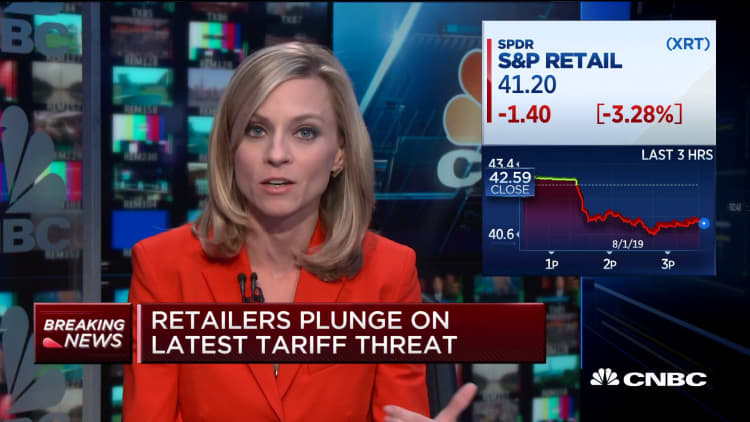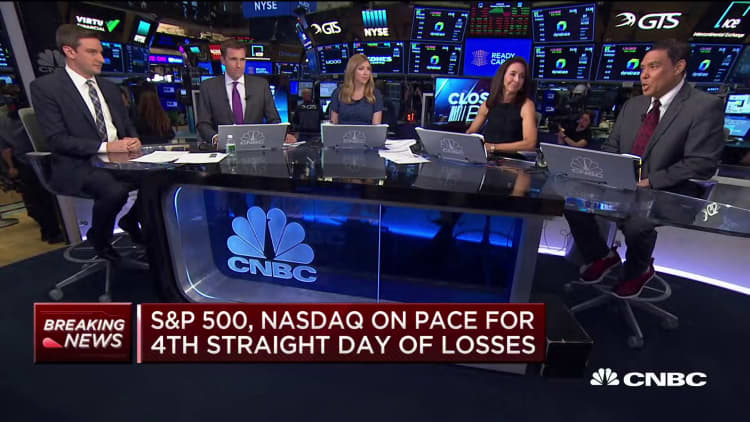Shares of retailers tanked as the industry may have the most to lose with the new round of China tariffs covering items such as clothing and TVs.
President Donald Trump abruptly ratcheted up the trade war with China on Thursday, announcing the U.S. is putting 10% tariffs on an additional $300 billion worth of Chinese goods, effective Sept. 1. Wall Street analysts who cover the industry had feared this development because the new tariffs will apply to a large swath of goods that they sell, raising their costs.
"The list of products these tariffs will hit are almost entirely consumer oriented," said the Retail Industry Leaders Association in a statement. "This new 10% tariff on Chinese imports is a direct hit on consumer products and family budgets, plain and simple."

"If these tariffs happen, American consumers will bear the brunt of these tactics via higher prices on everyday items like clothing, toys, home goods, and electronics," the statement added.
The SPDR S&P Retail ETF dropped more than 3%, on pace for its worst day since May. Best Buy and Abercrombie & Fitch both plunged about 11% on Thursday following the news.
"Particularly this last round is much more consumer than industrial focused," Oppenheimer analyst Brian Nagel said Thursday on CNBC's "Power Lunch." "Best Buy is very much the last man standing within the consumer electronics category but ... it's a much more price-sensitive discretionary purchase for the consumer."
Department stores were also under pressure following the tariffs announcement. Macy's and Nordstrom both declined nearly 7% while Kohl's shed almost 8%.
"We remain concerned that while most retailers expect to pass costs onto consumers, a deluge of concurrent price increases could potentially 'shock' or stall consumer spending overall," Nagel wrote in a June note.
Most of the apparel and footwear space has moved sourcing out of China but there's still 10% to 15% of U.S. goods coming from China, Credit Suisse analyst Michael Binetti said Thursday.
"Companies can't price quickly, adding risk to C2H estimates before tickets can be reset in 2020," Binetti said.
The U.S. Chamber of Commerce said in a statement Thursday the new tariffs "will only inflict greater pain on American businesses, farmers, workers and consumers, and undermine an otherwise strong U.S. economy."



